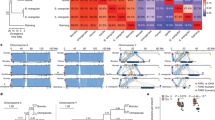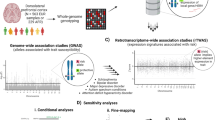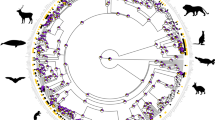Abstract
IVANHOE's1 claim that “Virchow diagnosed rickets in the Neandertal bones, accounting so for their peculiar simian cast,” is rather misleading. All Virchow2 stated was that the skull was that of an individual suffering from rickets and osteoarthritis and therefore racially unclassifiable. Since the antiquity of the Neandertal fossil is now no longer in doubt, the statements of Virchow and Ivanhoe raise two separate questions.
This is a preview of subscription content, access via your institution
Access options
Subscribe to this journal
Receive 51 print issues and online access
$199.00 per year
only $3.90 per issue
Buy this article
- Purchase on Springer Link
- Instant access to full article PDF
Prices may be subject to local taxes which are calculated during checkout
Similar content being viewed by others
References
Ivanhoe, F., Nature, 227, 577 (1970).
Virchow, R., Z. Ethnol., 4, 157 (1872).
Straus, W. L., and Cave, A. J. E., Quart. Rev. Biol., 32, 348 (1957).
Clark Howell, F., Quart. Rev. Biol., 32, 330 (1957).
Author information
Authors and Affiliations
Rights and permissions
About this article
Cite this article
MAYR, E., CAMPBELL, B. Was Virchow Right about Neandertal?. Nature 229, 253–254 (1971). https://doi.org/10.1038/229253a0
Received:
Issue Date:
DOI: https://doi.org/10.1038/229253a0
This article is cited by
-
Macrodontia in Pleistocene humans from Europe as a feature of physiological acromegalosis: association with geomagnetic dipole field intensity
Human Evolution (1990)
-
Bonding in wood fibre-cement composites
Journal of Materials Science (1984)
-
Cranial Morphology of Neanderthal Man
Nature (1972)
Comments
By submitting a comment you agree to abide by our Terms and Community Guidelines. If you find something abusive or that does not comply with our terms or guidelines please flag it as inappropriate.



